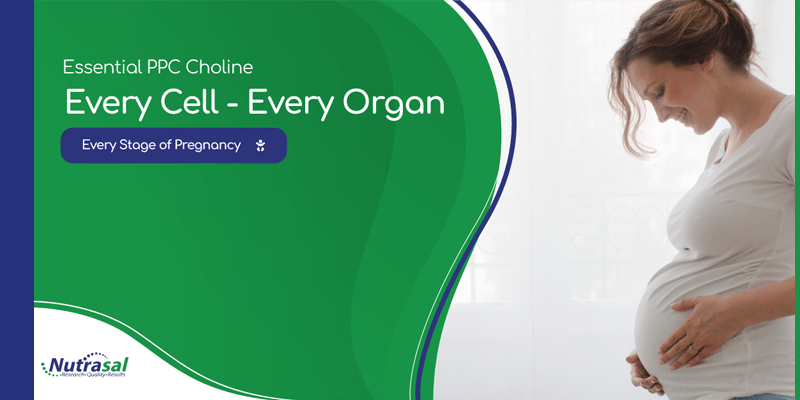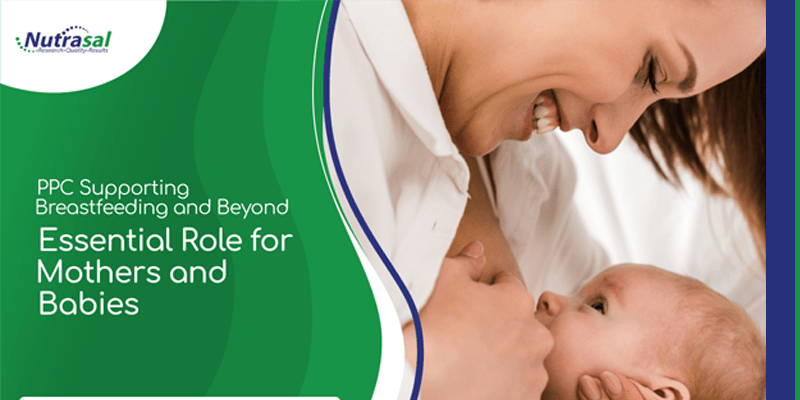Nutrasal - September 2024

Keywords/Roles: Polyenyl-Phosphatidylcholine (PPC), 1.2-dilinoleoyl-phosphatidylcholine (DLPC), Glutathione Restoration, Mitochondria Dysfunction, Oxidative Stress, Improved Mitochondrial Function, Mitochondria Respiration, Mitochondrial Energization, Apoptosis
Polyenylphosphatidylcholine (PPC) and Mitochondria
Mitochondria are organelles with unique characteristics. An organelle is a specialized subunit within a cell that has specific functions and is usually enclosed within its own lipid bilayer. A mitochondrion consists of an outer membrane and an inner membrane, both composed of phospholipids and proteins. While the outer membrane encloses the entire organelle, the inner membrane is compartmentalized into numerous cristae. These cristae expand the surface area of the inner mitochondrial membrane, enhancing its ability to produce adenosine triphosphate (ATP), an important source of chemical energy. As a result, mitochondria are often referred to as “cellular power plants.”
In typical liver mitochondria, the area of the inner membrane is about five times greater than that of the outer membrane. In addition to supplying cellular energy, mitochondrial membranes contain a large number of integral proteins. These proteins are involved in a wide range of critical processes, such as cell signaling and complex cellular transitions, including developmental cues, mitosis, and apoptosis (1).
Mitochondria are essential to multicellular life. Without mitochondria, cells lose the ability to respire aerobically and quickly die—a process exploited by certain apoptotic pathways.
The depletion of phosphatidylcholine in the membranes of hepatic mitochondria is an early sign of decreased capacity to control cellular respiration, oxidize substrates, and form high-energy phosphate metabolites. Over the last decade, several studies have shown that PPC, with its special ingredient 1.2-dilinoleoylphosphatidylcholine (DLPC), positively affects the structure and function of mitochondria.
These findings can be summarized as follows:
Membrane Ultrastructure:
Electron microscopic examinations of hepatocytes, as early as 1977, demonstrated the positive effects of PPC in children with Kwashiorkor and in rats exposed to ethyl alcohol or carbon tetrachloride (2, 3).
The most striking effects of PPC were observed in the structure of the mitochondria. Just a few days after beginning treatment, the nearly complete disappearance of osmiophilia, otherwise present in the matrices, was notable in the malnourished children. As the number of mitochondria increased, the double membranes and cristae returned to normal, and dense intramitochondrial granules became visible (2, 3).
The benefits of PPC are not limited to the liver; when administered at a therapeutic level, PPC also facilitated the repair of mitochondrial membranes in spongiocytes of the zona fasciculata of the adrenal cortex (4).
PPC strengthens mitochondrial membrane integrity and addresses metabolic challenges, enhancing cellular function and promoting overall health and vitality.

Who should consider PhosChol?
“Anyone with any type of vascular disease, liver disease, toxin accumulation of any kind, neurological challenge, and simply to slow the aging process."
Dr. Robert Rowen, MD Author of "Second Opinion,Vol. XXIL, No. 5"
Mitochondrial Respiration:
PPC and DLPC improved ethanol-induced impairments in the capacity of hepatic mitochondria to oxidize fatty acids and reduced alcohol-induced fatty liver and hyperlipidemia. A likely mechanism for these preventive effects was the lowering of the adenosine diphosphate to oxygen ratio (ADP/O), which measures the efficiency of coupling between oxidation and ATP production. These changes were particularly evident when comparing the ratio of ADP-stimulated to non-stimulated oxygen consumption with substrates like glutamate, succinate, and palmitoyl-1-carnitine (5). Additionally, the phospholipids increased the activity of cytochrome c oxidase, a membrane-bound key enzyme in the mitochondrial electron transport chain that requires a normal phospholipid milieu for optimal activity (6).
Mitochondrial Energization:
Mitochondrial membrane potential, measured by determining the retention of a dye, was significantly diminished in HepG2 cells by ethanol and corrected by DLPC. Glutathione, an antioxidant that prevents damage to important cellular components caused by reactive oxygen species such as radicals, was also partially restored in the mitochondria (7).
Apoptosis:
Apoptosis, or programmed cell death, involves cytochrome c being released from mitochondria into the cytosol, where it participates in the activation of the enzyme caspase-3, which in turn triggers apoptosis. DLPC and PPC reduced ethanol-induced increases in hepatocyte apoptosis, cytochrome c leakage into the cytoplasm, and the content and activity of the cell-degrading enzyme caspase-3 (8). Furthermore, there was a trend toward a re-increase of the anti-apoptotic protein Bcl-xL after PPC and DLPC supplementation (8, 9).
According to the published data, PPC, with DLPC as its key component, is of particular value for the restructuring and functioning of the double membrane of mitochondria.
"If you want to keep your cells young - and running at their highest efficiency, I think PPC is one of the most important supplements you can take."
Robert Jay Rowen, M.D.

The Leading Healthcare Practitioner Brand Since 1982

Reference:
1. Braschi E, McBride HM: Mitochondria and the culture of the Borg: understanding the integration of mitochondrial function within the reticulum, the cell, and the organism. Bioessays 2010; 32: 958-66.
2. Théret CG et al: Phosphatidylcholines and hepatic steatosis. Méd. Chir. Dig. 1977; 6: 69-74.
3. Théret et al: L’hépatostéatose de dénutrition chez l’enfant. L’Ouest Médical 1977; 22: 1595-1614.
4. Théret CG et al: Ultrastructure de la cortico-surrénale et du foie dans l’alcoolisme experimental: effets réparateurs membranaires de dilinoléoylphosphatidylcholines. Revue Française De Gastroentérologie 1979; 7: 5-26.
5. Navder KP et al: Polyenylphosphatidylcholine attenuates alcohol-induced fatty liver and hyperlipidemia in rats. J. Nutr. 1997; 127: 1800-6.
6. Navder KP, Lieber CS: Dilinoleoylphosphatidylcholine is responsible for the beneficial effects of polyenylphosphatidylcholine on ethanol-induced mitochondrial injury in rats. Biochem. Biophys. Res. Commun. 2002; 291: 1109-12.
7. Xu Y et al: DLPC attenuates alcohol-induced cytotoxicity in HepG2 cells expressing CYP2E1. Alcohol & Alcoholism 2005: 40: 172-5.
8. Mak KM et al: Dilinoleoylphosphatidylcholine reproduced the antiapoptotic actions of polyenylphosphatidylcholine against ethanol-induced hepatocyte apoptosis. Alcohol. Clin. Exp. Res. 2003; 27: 997-1005.
9. Okiyama W et al: Polyenylphosphatidylcholine prevents alcoholic liver disease in PPARα-null mice through attenuation of increases in oxidative stress. J. Hepatol. 2009; 50: 1236-46.
100% Happiness and Satisfaction Guaranteed
Made in
USA
Mfr.
cGMP
Gluten
Free
Pure
PPC
3rd Party Tested
The Best Source of Phosphatidylcholine is 100% Pure PhosChol PPC (Dr. Sherry Rogers M.D.)
Phosphatidylcholine clearly plays a vital role in human and animal life. Its role is even more important when harmful environmental conditions lead to increased inflammation, oxidative and cell membrane damage. When cell membranes become damaged and rigid due to higher levels of inflammation and oxidative stress, cell function and metabolism decreases, and good health is replaced by dysfunction and ultimately disease. When membrane damages are present, PC is in high demand to help form, proliferate, restore and regenerate cell membranes and to enhance membrane-dependent metabolism. Providing a dietary source of purified PPC to your child may be one of the best things you can do to promote and preserve good health.
Conclusion:
A broad range of pharmacological investigations, clinical trials, and other available data on PPC and its different and unique modes of actions demonstrate that PPC acts primarily through its influence on membranes.As cell membrane damages occur in many disorders, PPC’s therapeutic approach is both physiological and holist and can be used alone or as an adjunctive therapy.

We Accept HSA & FSA Cards
Take advantage of Pre Tax Savings on Your Doctor Recommended Supplements



